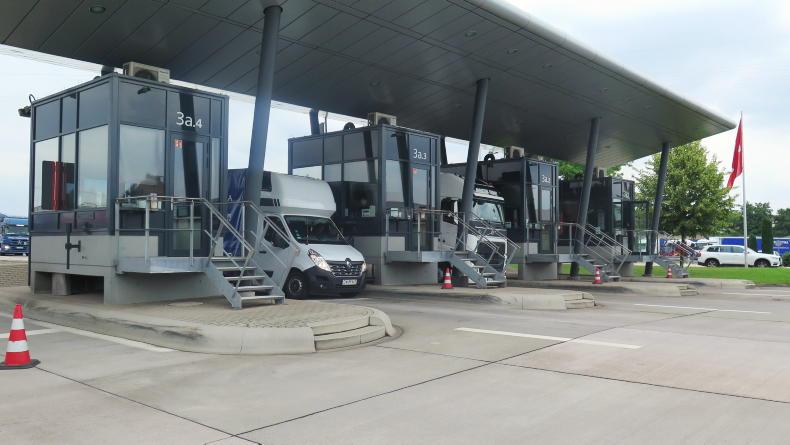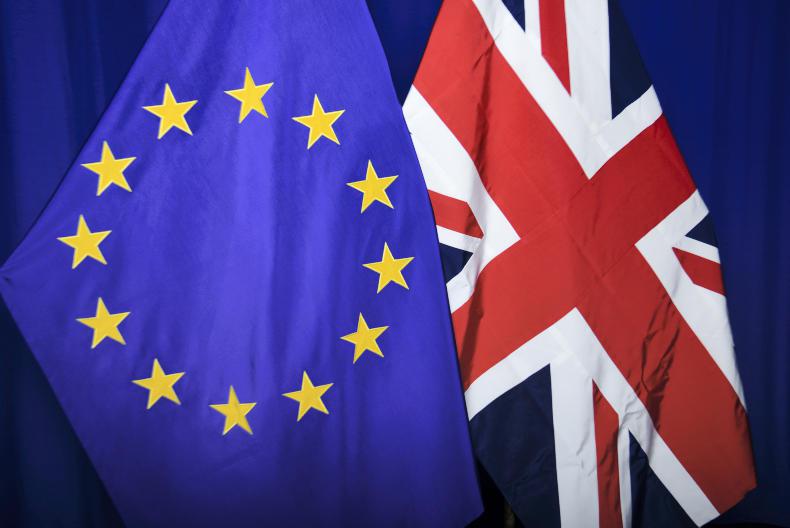The EU is open to the UK aligning its veterinary standards with those of the EU, European Commission vice-president Maros Šefcovic has said.
He told RTÉ News that the EU has raised the idea with the UK, which could see the UK aligning its sanitary and phytosanitary (SPS) standards with those of the EU.
This presents both a solution and a dilemma to the UK Government.
Solves Protocol issue
If the UK were to agree to align its SPS standards with the EU in the way Switzerland does, then it would remove the need for traders to generate veterinary health certificates or have checks on 30% of goods entering Northern Ireland (NI) from the rest of the UK.
The NI agriculture minister in fact lobbied the UK government for this in the middle of 2020 and if it was to happen, many of the controversial issues with the NI Protocol would be removed.
It would solve the problem of costs in generating veterinary certificates, which are penal for small-volume exporters, enable plants be purchased in Britain for use in NI or anywhere in the EU and enable sausages continue to be sold in NI that are produced elsewhere in the UK.
It would also solve the problem that many in the fishing industry in Britain are experiencing.
Sovereignty question
Even though alignment on SPS standards would resolve a major trade blockage between Britain and NI as well as Britain and the EU, there is no guarantee that the UK government will buy into the concept.
The reason that alignment was rejected as part of the withdrawal agreement by the UK was because it was felt it compromised sovereignty in making trade deals separate from the EU.
Director of trade and business strategy at the National Farmers’ Union (NFU) Nick von Westenholz said, in response to an Irish Farmers Journal question at a European agricultural journalists webinar, that this type of arrangement would appeal to UK farmers but that it might be a long journey to get to that point.
Ulster Farmers Union president Victor Chestnut similarly indicated recently that UK alignment with EU veterinary policy would be acceptable to NI farmers.
New Zealand-type option
There is thinking that the UK might be more in favour of a New Zealand (NZ) style veterinary deal, where there is mutual recognition of equivalent standards.
This is more streamlined than the present EU-UK arrangement and has just 1% of products checked, as opposed to 30%. However, this is less appealing to the EU.
Because of distance, NZ exports to the EU are volume deliveries to major ports, whereas trade between the EU and UK involves a multitude of small-volume consignments.
This is made possible because of the geographical closeness and just-in-time supply chains that have been built in the context of the UK being part of a single market of 28 countries.
Additionally, anything other than full alignment would still require checks and certification for trade between Britain and NI, even if it would be less than is required at present.
Trade-off
Ultimately, if the EU is offering a deal that requires veterinary alignment with the EU, then the UK government has to make a decision.
If there is alignment, a huge red tape burden is lifted on trade between the UK and EU and vice versa.
This solves the problems experienced by exporters since the start of the year and avoids the chaos that is predicted when the UK starts to implement its own veterinary controls in April and July.
On the other hand, it would restrict the flexibility that the UK has in negotiation of trade agreements with other countries.
Given the volume of trade between the EU and UK, most traders would accept this trade-off.
However, this is the essence of Brexit itself, the trade-off between full sovereignty and acceptance of non-tariff trade barriers.
Given the multiple comments made by the UK government about there being no future compromise in standards, then perhaps alignment with EU veterinary standards might be judged as pragmatic rather than a compromise on sovereignty.
It would also solve most of the NI protocol issues on goods of plant and animal origin entering NI from Britain and keep NI completely aligned with the rest of the UK, which has been a particularly sensitive issue with the operation of the protocol to date.






 This is a subscriber-only article
This is a subscriber-only article










SHARING OPTIONS: